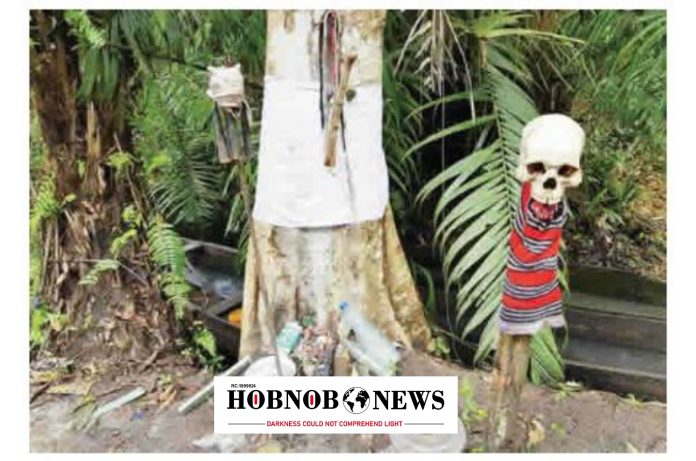As security operatives in Anambra State rescued kidnapping victims from a house belonging to a native doctor, concerns about insecurity in the state continue to grow.
Residents have urged Governor Chukwuma Soludo to take action against criminals disguising themselves as herbalists to evade arrest. They called for stricter regulations for native medicine practitioners, arguing that many shrines and buildings run by herbalists are being used as hideouts for kidnappers.
Insecurity in Anambra State has escalated, with frequent cases of abductions and assassinations by unknown gunmen. Stakeholders have expressed alarm over the situation and demanded urgent measures to address the menace. Rev. Fr. Emmanuel Obimma, the Spiritual Director of the Holy Ghost Adoration Ministry in Uke, Idemili North Local Government Area, criticized the government’s handling of security. In his New Year message, he lamented the state’s failure to prevent the kidnapping of his fellow priest, Fr. Nonso, who had recently returned from abroad.
Obimma expressed frustration with the government’s inability to curb rising insecurity and called on prominent Anambra indigenes such as Arthur Eze, Obi Jackson, Obi Cubana, Val Ozoigbo, Sen. Victor Umeh, Ada Umeoji, and Flavour to collaborate in addressing the state’s security challenges. He stressed that building infrastructure alone is insufficient and urged Governor Soludo to use the security vote to improve safety across the state.
“The government’s inaction on the security situation will have dire consequences,” Obimma warned, encouraging Anambra residents to demand better leadership and accountability from their leaders.
Meanwhile, a local security group, the Oraifite Joint Security Group, uncovered a makeshift apartment belonging to a herbalist in Oraifite community. The location, hidden inside a bush, was reportedly being used as a holding ground for kidnapped victims awaiting ransom payments.
The leader of the group identified the herbalist as Muo Chukwuma Ndubuisi, popularly known as Mmuo. Two kidnapped individuals were discovered at the site, with one of them, Gerald Ibe, recounting his ordeal.
“They (kidnappers) came to my house at night after I returned from my farm. They blindfolded me, took me on a motorcycle, and brought me here (to the herbalist’s house),” Ibe said. “They asked me to call my family to bring N100 million before they would release me.”
The community’s Chief Security Officer (CSO) reported that the herbalist fled when the vigilante group invaded his apartment. “The home of a Dibia (herbalist) in Oraifite was busted by our local vigilante, leading to the rescue of a captive who was abducted from Ihiala. The family of the captive was being asked to pay N100 million. Another man, also lured to the house by the herbalist, was found there. Mmuo, as the herbalist is known, has since been on the run with his gang,” the CSO stated.
Residents have called on Governor Soludo to take decisive action against those claiming to be native doctors, particularly those with shrines and homes in remote or forested areas.
Ben Ideh, a resident of Oraifite, said, “What our governor and other heads of security should know is that this kidnapping business is everywhere. Some criminals, to avoid detection, have turned to herbalists and moved to bushes where they build apartments and shrines. Most of them are kingpins of kidnapping gangs, and the earlier the state government starts probing them, the better for us all.”
Another resident, James from Awka, noted that many traditional medicine practitioners operate in remote areas, giving them the freedom to commit crimes without interference.
“This is a dire situation for us in Anambra State. We need the fight against killings and abductions to be total. It won’t be a bad idea if the state government conducts a census of herbalists and their locations to identify the genuine practitioners and weed out impersonators who kidnap and kill innocent people. Our governor should act now,” James urged.
As insecurity continues to plague Anambra State, calls for comprehensive and effective action from both the government and influential citizens have intensified. The need to regulate traditional medicine practitioners and monitor their activities is seen as a crucial step in combating crime and restoring safety to the state.

